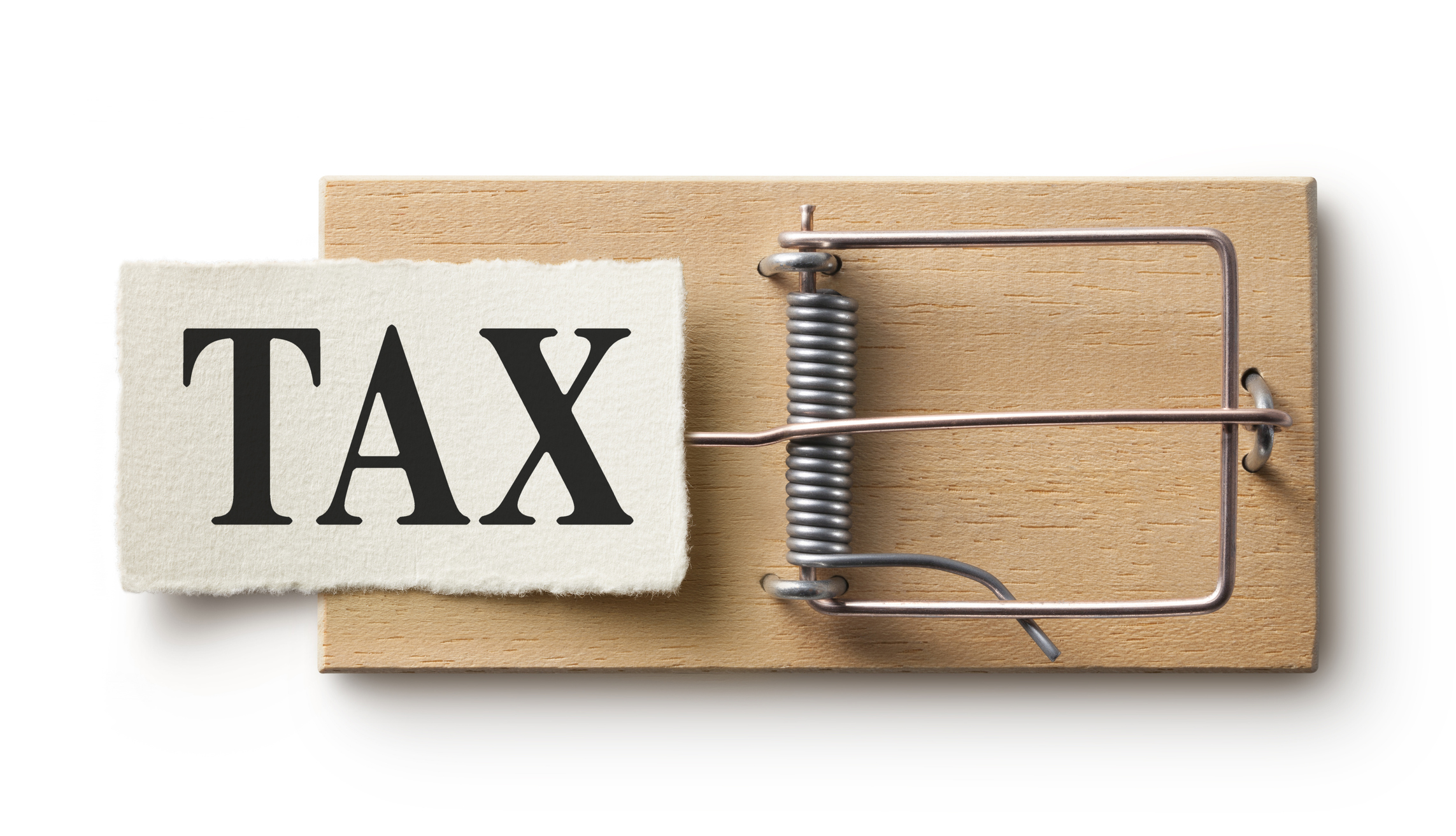What is salary sacrifice and how could it boost your pension?
Salary sacrifice could potentially be at risk in this week’s Autumn Budget. What is salary sacrifice, and how can you use it to increase your pension contributions?


Get the latest financial news, insights and expert analysis from our award-winning MoneyWeek team, to help you understand what really matters when it comes to your finances.
You are now subscribed
Your newsletter sign-up was successful
Want to add more newsletters?

Twice daily
MoneyWeek
Get the latest financial news, insights and expert analysis from our award-winning MoneyWeek team, to help you understand what really matters when it comes to your finances.

Four times a week
Look After My Bills
Sign up to our free money-saving newsletter, filled with the latest news and expert advice to help you find the best tips and deals for managing your bills. Start saving today!
Salary sacrifice can be one of the most effective means of boosting your personal wealth, and it could be worth seriously considering especially if you’re wondering how to spend your annual bonus.
The thing that makes salary sacrifice such a powerful savings tool is that it reduces the amount of income tax you pay on your earnings, meaning you get more bang for your buck. Salary sacrifice is most often used to increase pension contributions, but it can be used for a variety of benefits.
“Many employers offer salary exchange which is also known as salary sacrifice,” says Clare Moffat, pensions and tax expert at Royal London. “It’s where you agree to exchange part of your salary and then your employer pays all of the pension contribution instead of you paying some and them paying some.”
MoneyWeek
Subscribe to MoneyWeek today and get your first six magazine issues absolutely FREE

Sign up to Money Morning
Don't miss the latest investment and personal finances news, market analysis, plus money-saving tips with our free twice-daily newsletter
Don't miss the latest investment and personal finances news, market analysis, plus money-saving tips with our free twice-daily newsletter
Salary sacrifice makes sense for employers, as it enables them to offer greater perks to their employees without increasing their salaries.
But salary sacrifice could be under threat, as chancellor Rachel Reeves looks for ways to plug her fiscal black hole at this week’s Autumn Budget.
“Reports indicate that reform of salary sacrifice pension schemes could be one of the ways Reeves chooses to dance around Labour’s manifesto promises to boost the public finances,” said Charlene Young, senior pensions and savings expert at AJ Bell.
On 7 November, The Times reported that Reeves was planning to cap the amount that any individual could contribute to their pension through salary sacrifice without incurring National Insurance charges to £2,000 per year.
Analysis from AJ Bell found that the change could leave a 35-year-old earning £100,000 per year £50,000 worse-off by the age of 65, if it goes ahead.
What is salary sacrifice, and how can you use it to boost your pension savings and gain access to other perks?
What is salary sacrifice?
Salary sacrifice is an agreement to reduce your cash pay, usually in return for a non-cash benefit. That could include pension contributions, medical insurance or even a car.
“Using salary exchange [for pension contributions] is a way for more money to go into your pension but without any extra cost,” says Moffatt.
“The benefit is that you pay less income tax and National Insurance. That’s because your salary is reduced before tax and National Insurance is taken off. Your employer also pays less employers’ National Insurance, and they might pass on some or all of this saving to you.”
That double whammy of income tax and National Insurance is what makes salary sacrifice such an appealing target for the cash-strapped chancellor.
“The dual tax and NI advantages mean pension salary sacrifice has frequently come under scrutiny, as the government searches for opportunities to reduce tax reliefs and boost revenue without explicitly raising rates,” said Young.
Higher or additional rate taxpayers who are in a group personal pension get an additional benefit, as they receive all the tax relief rather than having to claim anything above basic rate back from HMRC.
“Many higher and additional rate taxpayers with group personal pensions forget that they have to claim their tax relief back and are losing out,” says Moffatt.
How salary sacrifice for pensions works
Moffatt gives a hypothetical example of Maria, who earns £35,000 and lives in England during the 2024/25 tax year. Maria’s employer returns 50% of the National Insurance savings from salary sacrifice to employees.
“She pays tax, National Insurance and an employee pension contribution of £1,400 and her employer pays £1,050 into her pension. This means Maria has a take home salary of £27,320. If she chooses salary exchange, it means her salary is lower, just under £33,056. She makes no pension contribution and that’s because her employer makes it all on her behalf.
“Maria’s take home salary is still £27,320. But the tax and National Insurance saving means that there is now £3,129 going into her pension instead of £2,450. Even if Maria’s employer didn’t pay some of their National Insurance saving in, it would still mean a reduction in tax and National Insurance for Maria.”
Workers could boost their pension pots by £41,200 – more than a year’s average salary – by opting into their employers' salary exchange scheme, according to figures from Scottish Widows.
Average salary workers – taking home £37,4301 annually – could increase their take home pay by £150 a year, simply by opting into their employers' salary exchange scheme. If this extra cash is then redirected into their pension pot, alongside the savings the employer makes through reduced National Insurance contributions, their pension savings would be boosted by £528 a year.
For a worker aged 30 and retiring at age 67, and assuming 5% investment growth, this would add £41,200 to their pension savings. Those opting in a decade later, at age 40, would see a £24,500 boost to their pension pot.
Is salary sacrifice just for your pension?
Most people tend to associate salary sacrifice with pension contributions, but it can be applied to a wide range of other benefits.
For example, there are salary sacrifice electric car schemes, where employees sacrifice some pre-tax salary in exchange for the monthly lease on an electric vehicle (EV). These enable employers to lease EVs from manufacturers, and for employees to then lease these from the employer, with the same tax advantages that pension salary sacrifice offers.
Other salary sacrifice schemes include workplace nursery schemes, which offer help with the cost of childcare, or technology schemes that could help spread the cost of a new phone or laptop.
There is also the cycle to work scheme, which helps cover the cost of a bicycle through salary sacrifice. That could also be tweaked in the Budget, with the FT reporting on 12 November that the chancellor is considering restoring a cap on the amount that can be spent on a bicycle to ensure it isn’t being spent on high-end bikes for recreational use.
It doesn’t look like this would make a significant difference to the Government’s coffers, though – and could merely increase confusion, critics suggest.
“When the government targets seemingly trivial areas like… the bicycle-to-work scheme for marginal savings (e.g., £40 million against a £40-50 billion deficit), it signals a lack of strategic focus and creates an environment where investors and consumers are left guessing what minor levy will come next,” said David Zahn, head of European fixed income at Franklin Templeton Fixed Income.
Can you use salary sacrifice on your bonus?
If you’re expecting a Christmas bonus, you may be wondering what the best way to spend it is. Some employers offer a bonus exchange scheme, which has similar benefits to salary exchange – with the perk of not reducing your monthly income.
“The key things to consider are immediate financial priorities like debt which you may want to pay off immediately,” Susan Hope, retirement expert at Scottish Widows, tells MoneyWeek.
“Secondly, when you might need this cash, for example savings for an emergency or savings goals in the medium-term.
“If it’s money that you don’t need for any of those types of things, using salary exchange to put it into your pension could help not only boost your pot, but for higher earners it could also help when it comes to tax, childcare benefit and personal allowance.”
For a basic rate taxpayer, paying directly into a pension using salary exchange could change a £5,000 bonus into a £6,090 pension contribution in the 2024/25 tax year, or a £6,150 contribution from 2025/26, once the reductions in employer and employee NICs are taken into account.
Get the latest financial news, insights and expert analysis from our award-winning MoneyWeek team, to help you understand what really matters when it comes to your finances.

Dan is a financial journalist who, prior to joining MoneyWeek, spent five years writing for OPTO, an investment magazine focused on growth and technology stocks, ETFs and thematic investing.
Before becoming a writer, Dan spent six years working in talent acquisition in the tech sector, including for credit scoring start-up ClearScore where he first developed an interest in personal finance.
Dan studied Social Anthropology and Management at Sidney Sussex College and the Judge Business School, Cambridge University. Outside finance, he also enjoys travel writing, and has edited two published travel books.
-
 Can mining stocks deliver golden gains?
Can mining stocks deliver golden gains?With gold and silver prices having outperformed the stock markets last year, mining stocks can be an effective, if volatile, means of gaining exposure
-
 8 ways the ‘sandwich generation’ can protect wealth
8 ways the ‘sandwich generation’ can protect wealthPeople squeezed between caring for ageing parents and adult children or younger grandchildren – known as the ‘sandwich generation’ – are at risk of neglecting their own financial planning. Here’s how to protect yourself and your loved ones’ wealth.
-
 The most and least expensive countries to be an expat in 2025
The most and least expensive countries to be an expat in 2025With some Brits fleeing the country to avoid seemingly ever-increasing taxes, we look at the most and least expensive countries to emigrate to.
-
 What has changed with employers’ National Insurance – and how will it impact you?
What has changed with employers’ National Insurance – and how will it impact you?Will you feel the effects of the National Insurance hike, as businesses warn of redundancies, smaller pay rises and higher inflation?
-
 Conservatives pledge to cut National Insurance again – how much could you save?
Conservatives pledge to cut National Insurance again – how much could you save?News A 2p reduction in National Insurance is a key feature of the Tory’s general election manifesto.
-
 Workers set for new national insurance tax cut – how much will you save?
Workers set for new national insurance tax cut – how much will you save?News National insurance tax rates have fallen but frozen allowances may limit the benefits.
-
 Spring Budget: What the latest National Insurance cut means for you
Spring Budget: What the latest National Insurance cut means for youNews Chancellor Jeremy Hunt announced a 2p cut in National Insurance in his latest fiscal update – how much could you actually save?
-
 Budget 2024: National Insurance cut, a new British ISA, and reform of the child benefit charge - here’s what has been announced
Budget 2024: National Insurance cut, a new British ISA, and reform of the child benefit charge - here’s what has been announcedThe chancellor has announced a host of changes, including cutting National Insurance again, and abolishing some tax reliefs. Here’s how the Budget will affect your finances.
-
 Brace for a year of tax rises
Brace for a year of tax risesThe government is strapped for cash, so prepare for tax rises. But it’s unlikely to be able to squeeze much more out of us.
-
 Topping up state pension to become easier with new online tool
Topping up state pension to become easier with new online toolAnyone looking to buy extra National Insurance contributions and boost their state pension currently has to make multiple phone calls - but a new online tool is on its way.